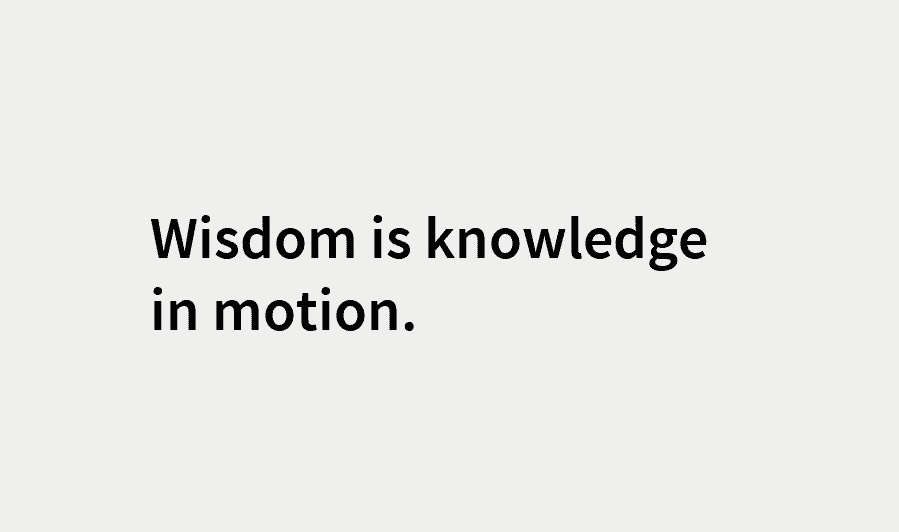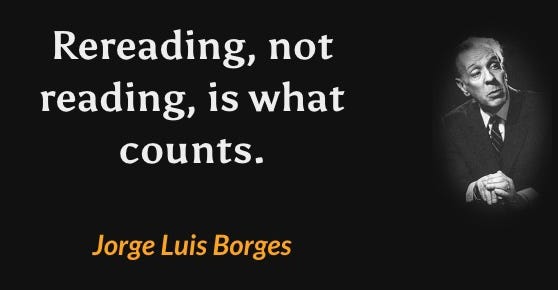… it’s the “Aha moment!” when we re-read what transforms.
The goal with this digest is to provide you with some quotes from the posts published during the month along with practical prompts and questions to use in 1:1 meetings, coaching sessions, and to inspire themes for larger team meetings.
It's not the critic who counts...
In Paris at the Sorbonne on April 23, 1910, Theodore Roosevelt gave a speech entitled “Citizenship in a Republic.” This speech contains a famous paragraph popularly known as “The Man in the Arena.” The metaphor of 'The man in the arena' finds itself woven into different contexts, serving as inspiration for anyone embarking on the pursuit of noble endeavo…
It’s you fighting in the arena who counts, not being a commentator of someone else’s struggles on the side.
We need not exhaust ourselves in the wrong arena.
Whatever you decide, own it. Don’t be a victim of, don’t find excuses after. What you can’t compromised is your inner compass.
It’s not just about being, it’s about becoming.
“Shame on the man of cultivated taste who permits refinement to develop into fastidiousness that unfits him for doing the rough work of a workaday world.”
Complacency. You may have conquered the arena, but don’t let the now conquered arena, conquer your will.
Questions and prompts to use with your team:
On the arena of leadership: How do you interpret the concept of being the "man in the arena" within your realm of leadership? How can we inspire our teams to embrace challenges and take courageous actions, even when faced with adversity?
On balancing resilience and adaptation: The text emphasizes both resilience and the ability to change arenas if necessary: How do we guide our teams to distinguish between persistent resilience and recognizing when it's time to pivot or shift directions? Do we have agility, adaptability and flexibility as core competences developed in our teams?
On complacency as a threat: How can we shape a culture that acknowledges the dangers of complacency? What strategies can we implement to keep our teams vigilant and motivated to continuously improve, in particular after achieving success?
How can we equip our teams with the tools to sustain excellence? What practices can we implement to prevent overconfidence?
How can we help our teams push beyond their comfort zones?
How can we strike a balance between providing a sense of safety and encouraging a mindset that always seeks improvement and innovation?
Will you be qualified to do your job tomorrow?
Welcome to a new edition of “Sebastian’s Leadership Reflections” In the pages of Jim Collins' renowned book "Good to Great," we learn about the remarkable journey of a quintessential leader named Darwin Smith, as we uncover the profound wisdom of the 5 levels of leadership, a concept illuminated by Collins.
Level 5 leadership combines personal humility and unwavering determination.
Darwin Smith, a CEO that probably none of us ever heard off, was the mastermind of the turnaround of the 100 years old company he became CEO in 1971, Kimberly-Clark, which core business was the production of coated paper.
By the time he took on the job, the company was not doing very well, with low margins and a declining stock value, so he orchestrated a remarkable transformation.
"We will achieve greatness or perish."
In refining our ambition for greatness, it is very important to humbly acknowledge the potential pitfalls of our ego, and aspire not just to lead effectively but with humble greatness.
“I never stopped trying to become qualified for the job.”
Questions and prompts to use with your team:
Should the position you are in today open for a hire of a new you tomorrow; will the job description be the same?, will the competencies and qualifications remain identical? Will there be differences? If so, what is that gap from where I am, and can I close it? How do I bridge from here to there while I continue doing my job?
Can our team members bridge the gap between today and tomorrow's expectations? Can we help them evolve to meet the changing demands of leadership while performing with excellence today?
Is our thinking clear so we understand if what we are doing today is relevant for tomorrow? what should we stop doing? what should be completely change because we are getting distracted from where the future will need us to be?
How do we eliminate the toxicity that entitlement, arrogance, bad mood and lack of empathy bring to the work environment to replace it by humility and will?
"Always two there are...
“I tried to make Messi the best player in the world, but he ended up making me the best manager in the world”. Pep Guardiola In 2008 Pep Guardiola became the coach of Barcelona, a job he did for 4 years, between 2008 and 2012. Messi had made his debut with Barcelona at age 17 in 2004, so by the time Guardiola took the job, Messi was 21 years old.
“I tried to make Messi the best player in the world, but he ended up making me the best manager in the world”. Pep Guardiola
It was the apprentice that made the master better.
Working with an apprentice can be more important to the master than to the apprentice.
As the apprentice grows the master needs to dig deeper to find new ways, new stories, more nuanced approaches… and in the process knowledge and its applications evolves and adapts.
In the end, if the apprentice is dedicated and committed, it will be him who will push the master’s limits, making the master grow in the process.
This is why at any given time there are only two, a master and an apprentice. Who’s who? They are one and the same.
Questions and prompts to use with your team:
How do you interpret Guardiola's statement"I tried to make Messi the best player in the world, but he ended up making me the best manager in the world" How might it reflect the symbiotic nature of mentorship?
Extrapolating from Guardiola's experience, how might you relate this concept to your own leadership journey? Can you think of instances where guiding and empowering others propelled your own growth? Share your insights and experiences with the team.
Have you encountered situations where aiding someone else's growth pushed you to expand your horizons? How did this experience reshape your skills and perspectives?
Share instances where you've mentored or been mentored, leading to mutual growth. How did stepping into these roles reveal untapped potential and uncharted avenues?
the master-apprentice dynamic echoes the essence of learning and growth. Can you recall instances beyond professional settings where this dynamic flourished? How did these connections nurture development in unexpected ways?









